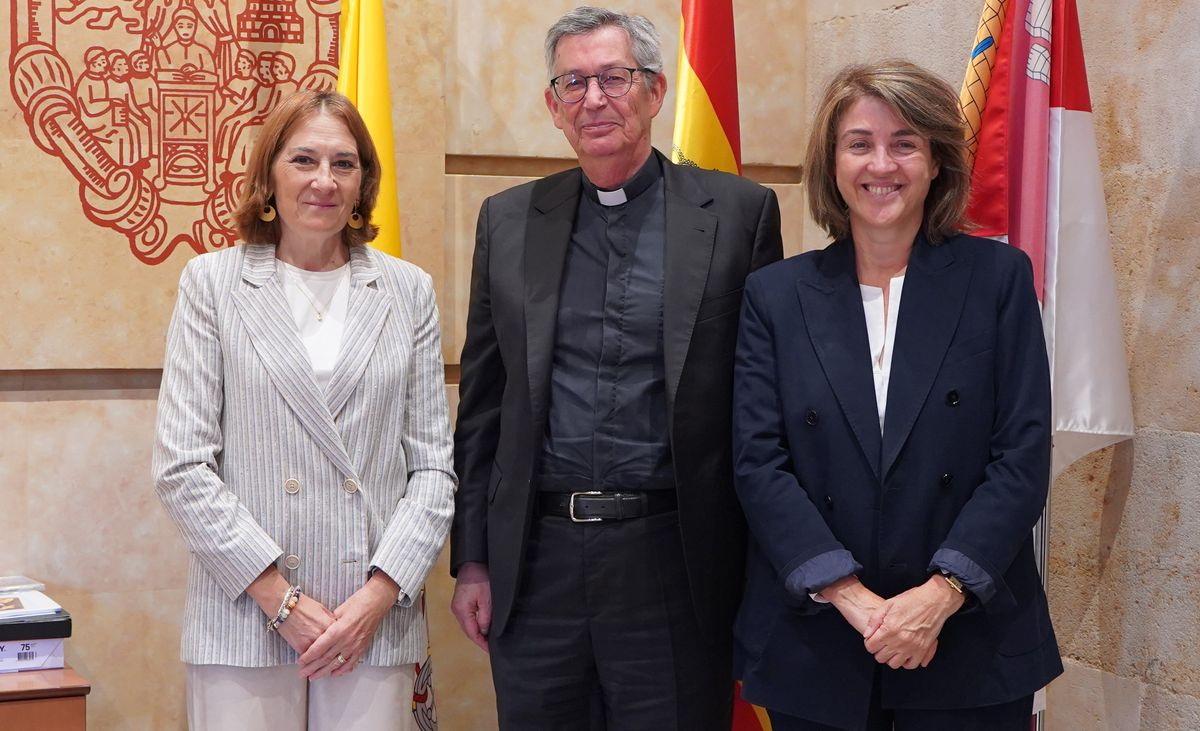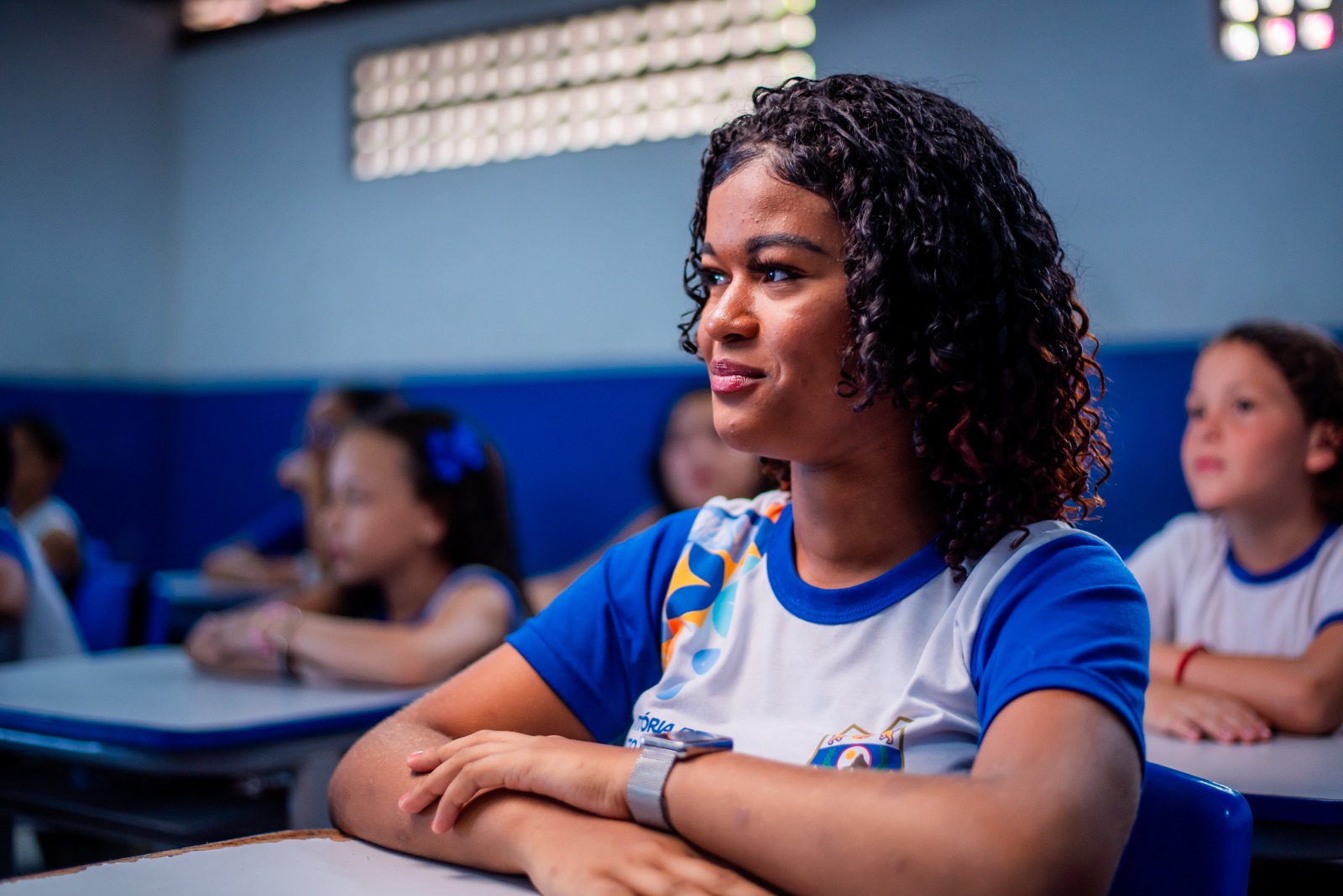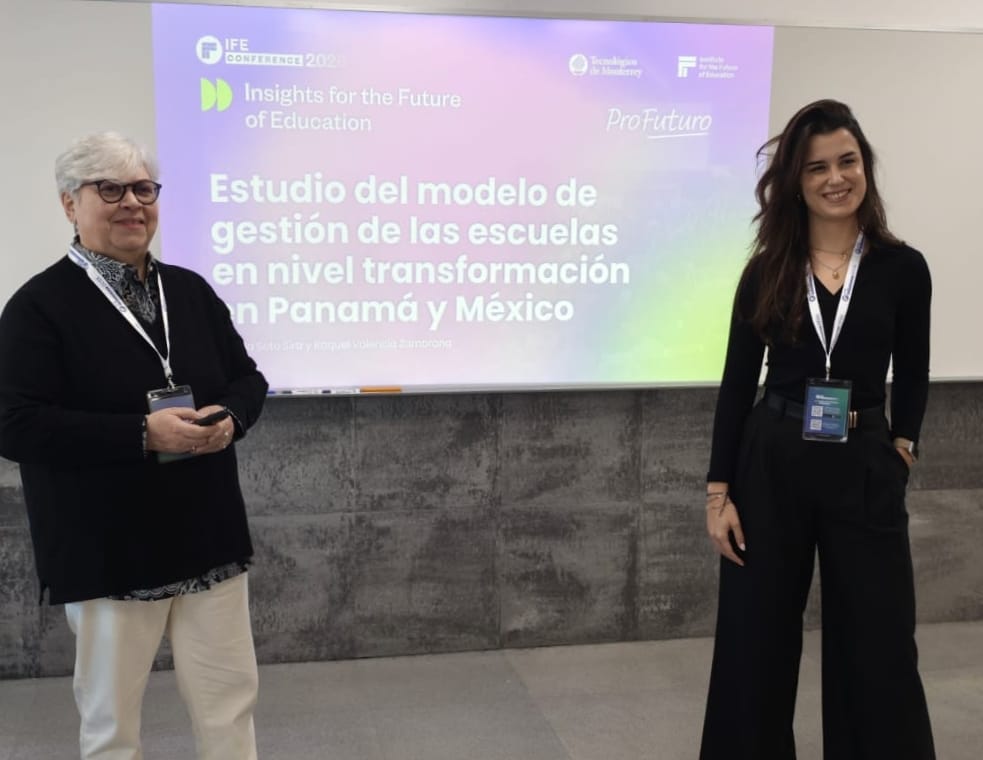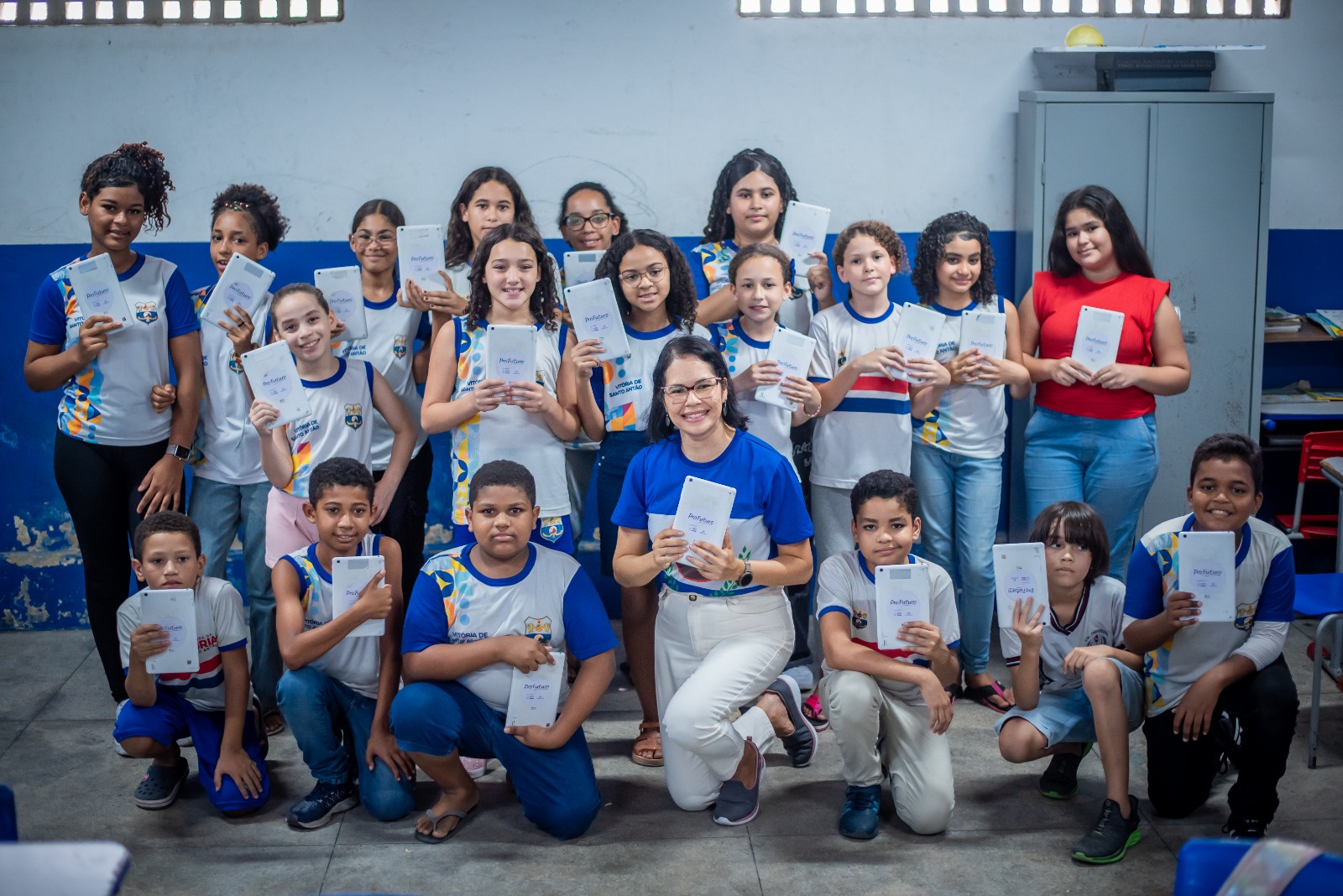ProFuturo, the Pontifical University of Salamanca (UPSA) and the Telefónica Chairs Network have renewed their collaboration agreement, in place since 2018, thereby reinforcing their joint commitment to the analysis, research, and promotion of educational innovation with technology worldwide, particularly in the vulnerable environments where ProFuturo operates.
The renewal ceremony was attended by Magdalena Brier, General Manager of ProFuturo; Beatriz Herranz, General Manager of Telefónica for Castilla y León, Castilla-La Mancha and Madrid; Santiago García-Jalón de la Lama, Rector of the Pontifical University of Salamanca; Ana María Fermoso, Vice-Rector for Research and Knowledge Transfer; Manuel Martín Merino, Professor of Computer Science and Director of the Chair, and Vidal Alonso Secades, Dean of the Faculty of Computer Science, who highlighted the achievements reached so far and reaffirmed their commitment to continue advancing in the development of joint actions within the framework of the Telefónica ProFuturo-UPSA Chair. This Chair, created through the agreement between ProFuturo, Telefónica and UPSA, has become a benchmark space for research, training, and knowledge transfer around digital education, with special focus on vulnerable environments.
As a result of this collaboration, among other initiatives, #hack4edu was born, the largest Ibero-American educational hackathon, which since 2020 has brought together more than a thousand students from 12 countries and 30 universities to propose and solve technological challenges related to digital education and AI in vulnerable environments.
The new agreement reinforces the commitment of the three entities to generate social impact through educational innovation. Its main objectives include promoting applied research projects, organising seminars and scientific conferences, as well as producing training materials and resources for teachers and future education professionals.
During the event, the spokespersons of ProFuturo, Telefónica and UPSA underlined the importance of joining forces to respond to the educational challenges of the 21st century, especially in a global context marked by accelerated digital transformation. Magdalena Brier, CEO of ProFuturo, stated that “the alliance with the UPSA, and with Telefónica Chairs, allows us to advance in the development of inclusive and sustainable educational solutions, capable of reaching the children who need it most, to provide them with development opportunities so that they can live a full and dignified life, personally and professionally.”
For his part, the Rector of the Pontifical University of Salamanca (UPSA), Santiago García-Jalón de la Lama, pointed out that this agreement represents “an important reinforcement of research and knowledge transfer, framed within the strategic lines of the University and the creation of chairs as a
result of this transfer, which is manifested, among other actions, in the close collaboration with leading entities in this field such as Profuturo, the Telefónica Foundation and the ‘la Caixa’ Foundation.”
From Telefónica, Beatriz Herranz, General Director for Castilla y León, Castilla- La Mancha and Madrid stressed that “the work carried out by ProFuturo and by this Chair has provided some valuable lessons on the application of digital education in vulnerable environments, which is why Telefónica and Telefónica
Foundation are here today to reinforce our commitment to UPSA.”
Since its creation, the Telefónica ProFuturo-UPSA Chair has promoted impactful research, scientific publications and training events that have contributed to the transformation of schools and the professional development of teachers. This renewal will ensure continuity of these efforts and open new
opportunities for collaboration to address emerging challenges in education and technology.
With this signing, ProFuturo, Telefónica and UPSA reaffirm their commitment to excellence, innovation and equity in access to quality education, adapted to the needs of today’s world and aimed at building fairer and more sustainable societies.






